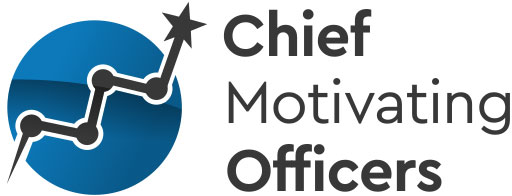If you don’t know anything about me, you should know one thing: I love books. Old books, new books… There are so many lessons that can be extracted from between the pages of these texts, lovingly thought through by their authors and proudly shared with the world. And unfortunately, being a frugal perpetual student, my budget to obsessively acquire books is limited. My solution: thrift shops. I’ve been able to gather thousands of dollars in wonderful, unique and rare books for pennies on the dollar, fill a shelf with a lovely rainbow of management, behavior, and leadership classics, and start a free online lending library in a Facebook group called the OBM/Management Skill Share.

This is the bookshelf in the CMO office: My literal “Reading Rainbow”!
While the books found in these dusty stores (between the ’80s shoulder pad dresses and creepy figurines of clowns) might not always be the most recent titles found in Barnes and Noble, reading old management and leadership perspectives has opened my eyes to the fact that some of the common issues we’re facing in modern business today are much the same faced many years ago.
Enter into my life: Mary Parker Follett. I had never heard of the “Mother of Modern Management” until I cracked this old compilation textbook, Management and Organizational Classics. Reading about Mary’s philosophies on business, I discovered her works would have been very welcomed in the behavior analytic community. She believed, like us, that people were shaped by the environment, and without those people, businesses were nothing. While, after her death in 1933, her legacy faded in organizational psychology in the United States, I was thrilled to be exposed to and learn about her stance on Management as a Profession, in her article of the same title.
In general, according to Follett, the successful management of any business relies on two areas of expertise: knowledge of the product of the organization, and knowledge of the personnel. While other management academics at the time often focused on mastering the production aspects of how businesses run, Follett understood how essential the human behavior component is to success at work. She stated, quite eloquently,
“… One may have a special aptitude for dealing with men as other may have for dealing with machines, but there is as much to learn in one case as in the other.”
Another emphasis in her article was the use of experimental design strategies to assess our management practices. In her time, and ours, science had become more and more accepted in business, but Follett states that, while organizations in her time had become quite good at experimenting, trying new things, and changing, organizing the results and making decisions upon the experimentation was (and still is) lacking. In other words, businesses were collecting data, but not acting upon it or using it to influence what strategies they would use to manage their people. While this observation was made in 1927, today similar issues still are pervasive in business and have been discussed recently in Harvard Business Review, Entrepreneur, and other mainstream business publications.
This problem, having been pervasive since the 1920s, would appear to be difficult to solve given that the issue is still faced today. But perhaps it isn’t as complex as one may think, with the help of Organizational Behavior Management practitioners. Follett had her ideas for solutions, but they didn’t appear to catch on. She posits:
“There should be, I think, in every plant, an official, one of whose duties should be to classify and interpret managerial experience with the aid of carefully kept records which should be required of every executive.”
Her example of a potential solution rings true: There is seldom ever a follow-up after an executive has made a management decision with the objective to record and compare results to previous strategies, or to others who have tried elsewhere inside or beyond the company. In scientific management, specifically, before implementing a performance management solution, the executive should determine:
- If other executives have experienced similar issues,
- How others had resolved the problems, and
- What results those individuals achieved.
Without tracking the data and strategies that executives are using to manage their people, and the results of those strategies, it is quite possible that new managers or different departments will continue to make the same management mistakes as those who came before them. Without this information, history is destined to repeat itself, wasting time, resources, and eating away at employee morale and confidence in leadership.
As OBM practitioners and behavior analysts, we are the ideal scientists to fill the role as described by Mary Parker Follett so many years ago. Upon entering an organization to begin working on performance issues, we are required to do the appropriate “records review”, especially when it comes to trying to solve a long-standing leadership problem that has been analyzed before. Not only will it keep the OBM practitioner from implementing unsuccessful strategies that were not sustained in the culture previously, but will also provide valuable information as to why these changes were not sustained. We should also be looking at all of that data that is being filed away in many businesses. In our records review, we should be collecting sources of existing data like gold. That is where we start: before doing our assessments, diagnostics, and solution planning, we need to thoroughly see what has happened before, and get the data organized in a way that we can make science-back decisions about what we can do to help with the problem.
This reading from Follett highlighted the records review as, not only a good idea, but a crucial step in the performance management process. In my opinion, Follett would have made an amazing OBM practitioner, and stumbling upon this classic management literature has fueled my excitement around how OBM can change the world of business. We have the keys to potentially resolve issues that have plagued businesses forever. We just need to show the world what we can do.
I would love to hear your thoughts in the comments: how do we show businesses that we can solve issues that they consider part of regular business?
And to read Mary Parker Follett’s article:
Follett, M. P. (1927). Management as a Profession. In Management and Organizational Behavior Classics(pp. 7-17). Boston, MA: Richard D. Irwin.

